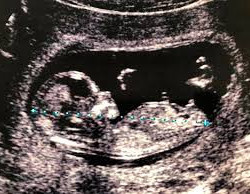A Dog's Life: COVID-19 Edition
I remember returning to my dorm room after class on no particular day in late February, kicking off my shoes, putting on fuzzy socks, and plopping into bed. I was scrolling through Youtube as I usually did, expecting to see the normal comedy videos, beauty tutorials, or DIY's recommended for me. But on this day, a documentary popped up on my homepage about a man's experiences living in Wuhan, China amidst the COVID-19 outbreak. As much as I felt like this video had nothing to do with me at the time, I felt like I couldn't look away from it. During this time, life still felt normal in the U.S., and the possibility of an outbreak here felt like a distant dystopia that we were removed from. Still, I had a lurking concern that this would soon be my reality, but everytime I mentioned this to my friends, I was told to stop worrying. So, I watched documentaries, like this one, on my own. What struck me the most about this documentary was a seemingly insignificant moment when the videographer passed by a dog on the street, and nonchalantly explained that he won't be able to pet a dog for a long time due to COVID-19 health concerns. I paused the video and began reminiscing on all the times I saw a dog on my college campus, and the joy I would feel when the owners invited me to come pet them. As small as this gesture seems, these encounters would make my day, the feeling of the dog's soft, warm fur melting my stress away. I couldn't imagine passing by a dog and thinking “danger” or “stay away”. I couldn't imagine refraining from petting a dog as they gazed into my eyes with adoration. I couldn't imagine living like the man I saw on my screen in the documentary, afraid of such a simple interaction. Yet I had a feeling I would soon have to live this way. In early April, a few weeks after college campuses sent students home due to the rapid spread of COVID-19 in the U.S., I took a walk with my dad. These walks became a normal part of our routine, a way to pass the time and feel a sense of artificial freedom within the confines of our sleepy neighborhood. During this walk, I remember telling my dad how unreal this “new normal” felt to me. I explained that I still clung to the hope that I would soon be going back to college, that my dorm room still had “Megan and Tiffany” hanging on the front door, that my clothes were still hanging in the closet, and that my string lights were still shining along the perimeter of my tapestry. The reality that my room was empty, cold, and vacant was unfathomable. During this conversation, my dad and I spotted a neighbor walking their golden retriever, my favorite breed of dog. I watched as the dog quite literally skipped along the sidewalk, tail wagging, tongue out. His face looked like he was genuinely smiling, his teeth showing and his eyes squinting. My natural response was to go ask the neighbor if I could pet his dog-- but I quickly stopped myself. Not only did I need to keep my distance from the neighbor, but I also needed to stay away from others' pets, unsure if they could carry coronavirus. I had to just keep walking by, even making a conscious effort to walk further away from them to maximize our distance. In that moment, I remembered the documentary I watched about the man living in Wuhan, and the clip where he had to resist the urge to pet a dog he saw on the street. It was then that I realized this was my reality, too. I was now the one who couldn't pet the dog. I was the one wearing a mask I never thought I'd need. I was the one whose life felt apocalyptic. Taking ownership of my new reality was unexpectedly liberating. Rather than watching the news from a disconnected perspective, I could now accept that this was my narrative, too. As scary as it is, this is our “new normal”, at least for now, and the sooner we accept it, the sooner we can take precautions to keep ourselves and others safe. We can't afford to live in denial. By accepting this new reality, we free ourselves from dwelling on the inconveniences we now must endure. In doing so, we open ourselves up to the present and on what we each need to do to minimize the spread. By not petting that dog, I put myself in the present-- this one sacrifice gave me the reality check I needed. Staying safe right now is a matter of making little sacrifices like this one, sacrifices that seem irrelevant in comparison to the bigger-picture risks. I implore everyone to continue taking precautions; to wear masks, social distance, and wash hands frequently; to stay present and grounded; and to keep the life-threatening risks in mind when temptations to break these safety measures start to blur our new reality.







